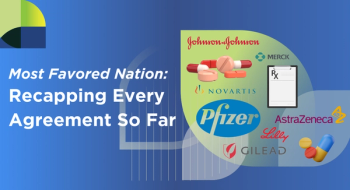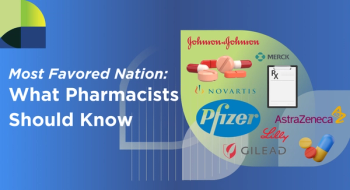
- Generic Supplement 2014 0
Legislative Update: Generic Reimbursement Rates Remain Battleground for Community Pharmacies
The amendments in a proposed bill would alter pharmacy benefit managers’ (PBMs’) reimbursement policies in a way that its authors intend to close the gap between the costs for pharmacies to stock generic medications and the payment they receive from PBMs, says the National Community Pharmacists Association (NCPA).
The bill, introduced in April 2014, is designed to introduce a modicum of transparency into PBMs reimbursement rates for generic drugs, as well as maintain patients’ ability to choose their pharmacies. Its bipartisan sponsors include Rep Doug Collins (R, GA) and Rep Dave Loebsack (D, IA) in the House of Representatives, and Sen Mark Pryor (D, AR) in the Senate. It was referred to the House Energy and Commerce Committee and the House Ways and Means Committee and to the Senate’s Finance Committee for further discussion and modifications.
The amendments in the bill specifically require reimbursement standards that are based on the cost of the drug, including average wholesale price, wholesale average cost, average manufacturer price, average sales price, and maximum allowable cost. The bill also requires PBMs to update reimbursement standards at least once a week to reflect market acquisition prices, disclose the sources used to make reimbursement updates to pharmacies, and establish an appeals and investigation process for reimbursement disputes.
In addition, the bill also forbids PBMs from transmitting personally identifiable utilization or claims data on plan enrollees to PBM-owned pharmacies if an enrollee has not elected to fill a prescription there. An additional provision forbids PBMs from requiring plan enrollees to use specific pharmacies—including retail, mail order, or specialty pharmacies—or providing incentives to use a pharmacy if the PBM has an ownership interest in the pharmacy, or the pharmacy has an ownership interest in the PBM.
With pharmacy acquisition costs for many generic medications rising, the outdated reimbursement rates can lead to losses of $60 to $100 per prescription for community pharmacies, NCPA says.
“The Generic Drug Pricing Transparency Act continues to be a priority for independent community pharmacies because the problem of drug price spikes and painfully slow updates by PBMs also continue,” John Norton, director of public relations for NCPA, wrote to Pharmacy Times. “Ultimately, this is a patient issue because patient access to pharmacy care is jeopardized if independent community pharmacies are forced to continue incurring unsustainable losses.”
NCPA detailed its concerns and advocated for the bill in a June 25 letter sent to the Senate and House of Representatives committee heads. The letter requested a hearing regarding the reimbursement concern and the bill, Norton notes.
The Centers for Medicare & Medicaid Services (CMS) final rule for 2015 Part D prescription drug plans addressed portions of NCPA’s concerns; however, says Norton, the bill offers increased protection for community pharmacies.
“We are relieved that CMS partially addressed this issue in its final rule,” Norton says. “At the same time, this legislation features additional reforms to address this problem that are not incorporated into the final CMS rule, which also doesn’t take place until 2016. Hopefully, Congress can take inspiration from the 16 states that have passed similar legislation in the past 2 years.”
Articles in this issue
almost 11 years ago
Generic Product Showcase-February 2015about 11 years ago
Generic Product Showcase-December 2014over 11 years ago
Generic Product Showcase-October 2014over 11 years ago
Lupin Pharmaceuticals, Inc.over 11 years ago
Mallinckrodt Specialty Genericsover 11 years ago
Mallinckrodt Pharmaceuticalsover 11 years ago
Roxane Laboratories: A Connection to Excellenceover 11 years ago
Generic Product Showcaseover 11 years ago
Dr. Reddy's Now Ranked 7th Among the Leading US Generics CompaniesNewsletter
Stay informed on drug updates, treatment guidelines, and pharmacy practice trends—subscribe to Pharmacy Times for weekly clinical insights.


























